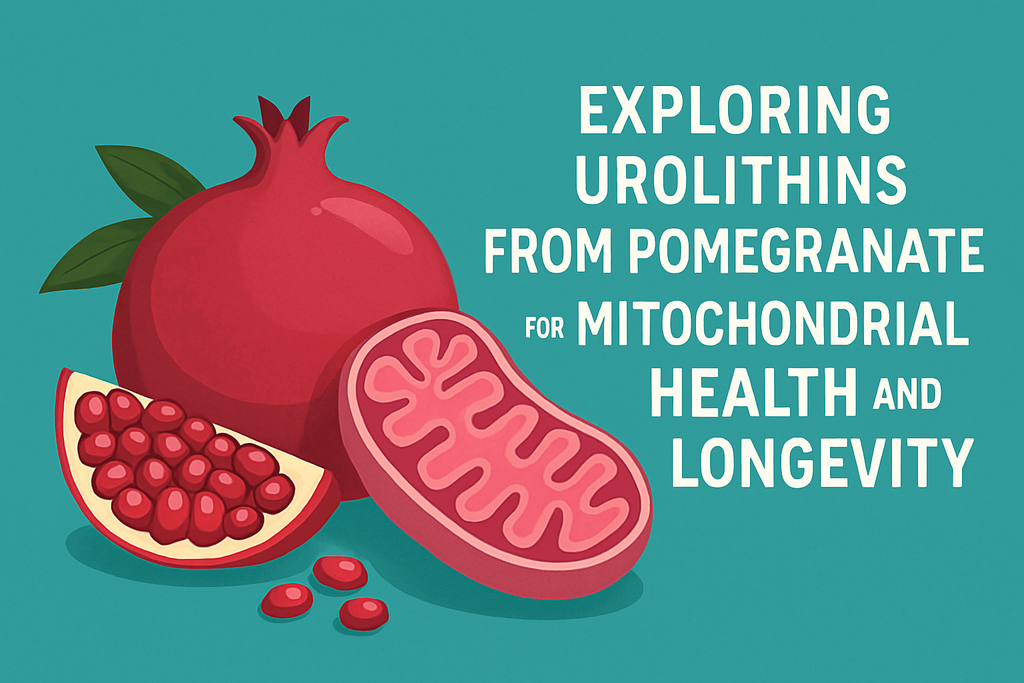News — mitophagy
Urolithin A & Mitophagy: Cellular Renewal for Anti-Aging and Longevity
cellular health mitophagy urolithin a
In the ever-evolving field of longevity and anti-aging, one molecule is quietly reshaping how we think about cellular health: Urolithin A. Derived from polyphenols found in pomegranates and other fruits, Urolithin A isn’t just another antioxidant—it’s a powerful activator of mitophagy, the body's natural process of recycling damaged mitochondria. As science uncovers more about the root causes of aging, mitochondrial health has emerged as a central player in maintaining energy, metabolism, and resilience over time.
Imagine a biological “spring cleaning” that keeps your cells young, energetic, and functional—this is what mitophagy offers. And Urolithin A appears to be the spark that ignites this internal renewal process. In this guide, we dive into the science behind Urolithin A, explore the vital role of mitophagy in aging, and show how enhancing mitochondrial function can lead to a longer, more vibrant life. If you're curious about cutting-edge longevity strategies, this article will change the way you view aging from the inside out.
Urolithins from Pomegranate: Boosting Mitochondrial Health and Longevity
anti-aging supplements cellular energy ellagitannins energy metabolism fisetin supplement gut microbiome healthy aging longevity mitochondrial biogenesis mitochondrial health mitochondrial support mitophagy muscle performance natural anti-aging oxidative stress pomegranate metabolites postbiotics PQQ supplement urolithin A urolithin benefits
In the search for graceful aging and vibrant cellular energy, mitochondria—the tiny powerhouses of our cells—have become a focal point of cutting-edge health science. When these energy engines falter, so does our vitality. But what if a natural compound found in a common fruit could spark mitochondrial renewal and extend the lifespan of our cells? Enter urolithins, postbiotic metabolites derived from pomegranates that are quickly gaining a reputation as game-changers for mitochondrial health and longevity.
Urolithins, especially Urolithin A, are not present in pomegranate juice itself. Instead, they’re produced by gut bacteria when ellagitannins—polyphenols found in pomegranates—are metabolized. These molecules have been shown to stimulate mitophagy (the selective recycling of damaged mitochondria), reduce inflammation, and improve muscle function in both animal models and human trials. In a world where fatigue, cognitive decline, and aging-related conditions are increasingly common, urolithins may hold a juicy secret to a longer, more energized life.


